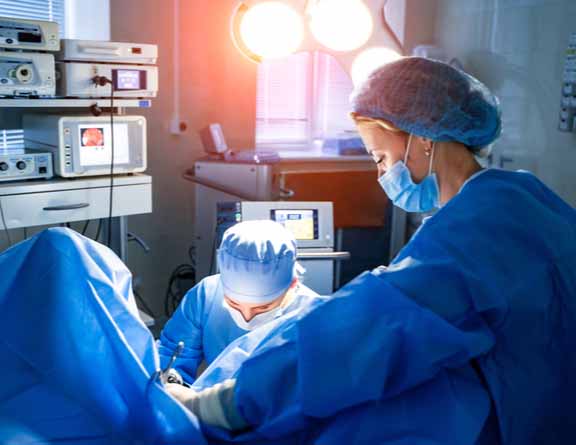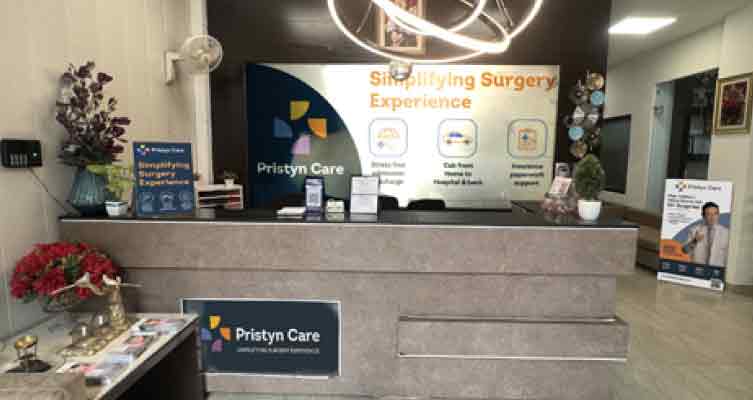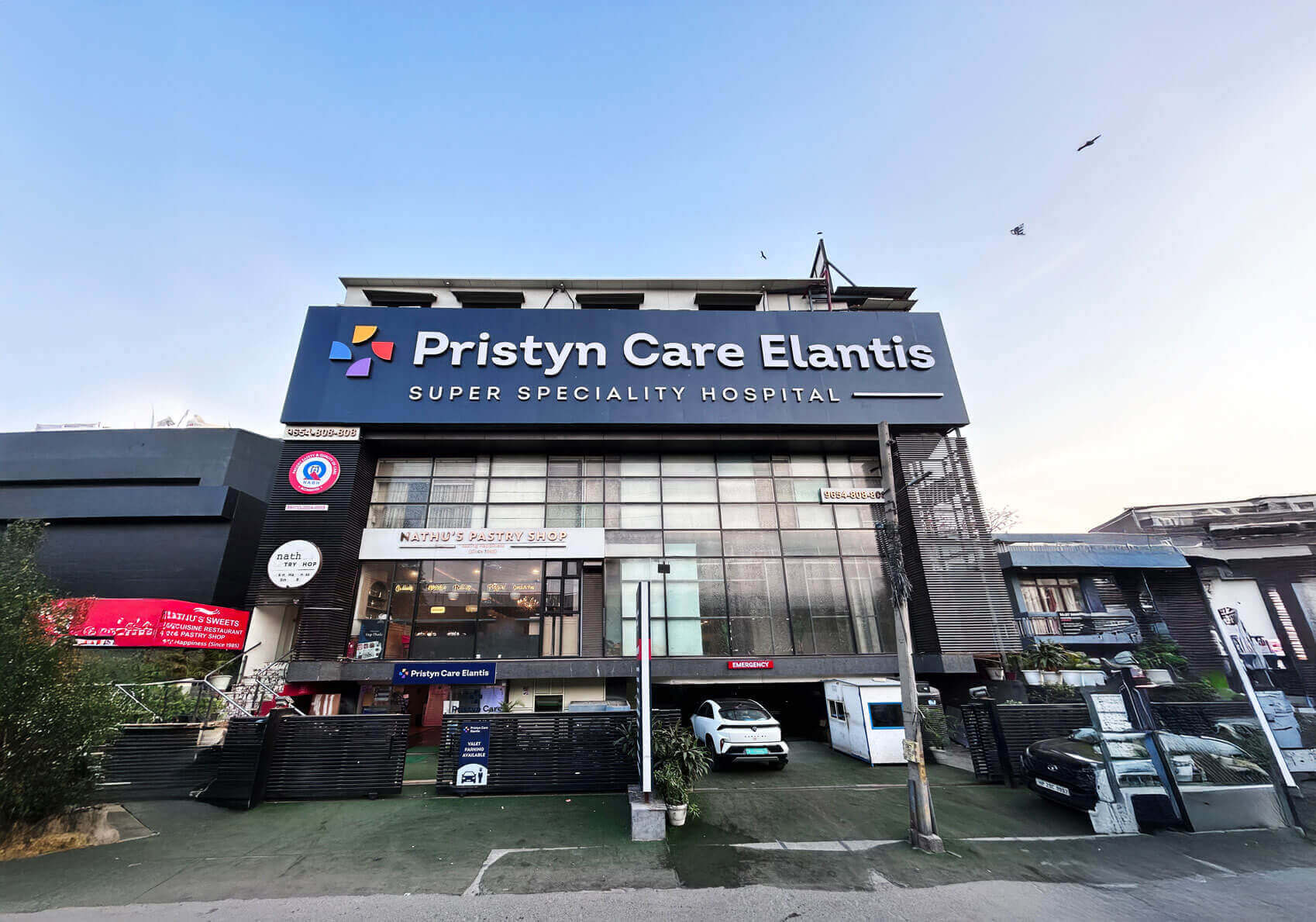
Delhi
USFDA Approved Procedures
Minimally invasive. Minimal pain*.
Insurance Paperwork Support
1 Day Procedure


Throat Infection - Diagnosis and Surgery Procedure
Diagnostic tests for a throat infection typically include a physical examination and a review of symptoms, as well as one or more of the following tests:
Your doctor may order one or more of these tests to help determine the cause of your throat infection and develop an appropriate treatment plan. It’s important to follow your doctor’s recommendations and get all the recommended tests done to ensure an accurate diagnosis and effective treatment.
Surgical Treatments to Treat Various Causes Leading to Severe Throat Infection
Here are some common procedures to treat the root cause of severe throat infections:
Tonsillectomy: The surgeon will make an incision in the back of your throat to access your tonsils. In some cases, a special instrument called a coblator might be used to remove the tonsils using a technique called coblation tonsillectomy, which uses low-level radiofrequency energy to soften and dissolve the tonsils.
The surgeon will then carefully remove the tonsils from their surrounding tissue. In some cases, a scalpel may be used to cut the tonsils out. In others, the tonsils may be pulled out using forceps.
Once the tonsils have been removed, the incision site will be closed using stitches or special adhesive tape.
Adenotonsillectomy: The patient will be given either general anesthesia or local anesthesia for the procedure. The surgeon will make an incision in the back of the throat and carefully remove the tonsils and adenoids. The incision will then be closed with sutures or surgical glue.
Uvulopalatopharyngoplasty (UPPP): An incision will be made in the soft palate at the back of the mouth and the tonsils may also be removed if necessary. The surgeon will then remove the uvula and excess tissue from the soft palate and the back of the throat.
The edges of the soft palate will then be sutured together to create a more stable airway. The incision is closed using sutures or staples.
Uvulectomy: The surgeon will make a small incision in the throat to access the uvula.
The uvula will be removed using scissors, a scalpel, or a laser. The amount of uvula removed will depend on the reason for the procedure. The incision will be closed using sutures or staples.

H/56, Ground Floor, Sector 51, Near Diamond Crown Banquet Hall, Noida, Uttar Pradesh 201301

No C 65 & 66, Nawada Housing Complex, Nawada, Opposite Pillar No 795, New Delhi, Delhi 110059


 NABH
NABH
Pristyn Care Elantis is dedicated to revolutionising surgical care. We combine the latest medical technology with highly skilled professionals and a patient-centric approach to transform the healthcare experience. Our team of doctors at Pristyn Care Elantis, strives to simplify the entire patient journey, ensuring a seamless process from diagnosis through recovery.
We offer specialised treatments across a wide range of medical fields, including proctology, laparoscopic surgery, ENT (ear, nose, and throat), vascular, gynaecology, urology, aesthetics, orthopaedics, ophthalmology, and weight loss solutions.
The Suites & Rooms at Pristyn Care Elantis are designed with your comfort in mind, offering a welcoming ambiance and top-notch amenities to make your stay as pleasant as possible.
Our highly skilled medical team, supported by advanced infrastructure, makes us a trusted choice for comprehensive healthcare solutions.
...Read More
Delivering Seamless Surgical Experience in India
Your safety is taken care of by thermal screening, social distancing, sanitized clinics and hospital rooms, sterilized surgical equipment and mandatory PPE kits during surgery.
A dedicated Care Coordinator assists you throughout the surgery journey from insurance paperwork, to free commute from home to hospital & back and admission-discharge process at the hospital.
Our surgeons spend a lot of time with you to diagnose your condition. You are assisted in all pre-surgery medical diagnostics. We offer advanced laser and laparoscopic surgical treatment. Our procedures are USFDA approved.
We offer free follow-up consultations and instructions including dietary tips as well as exercises to every patient to ensure they have a smooth recovery to their daily routines.
The average cost of different throat surgeries in Delhi, in case of severe stages of throat infection may vary from Rs 40,000 to Rs 90,000 depending upon the type of surgery required(like tonsil surgery, thyroid surgery, adenoid surgery or else). It may also vary for each individual depending on various factors such as the severity of the condition, hospitalization and surgeon’s charges etc.
Signs and symptoms of throat infection include:
Generally, throat infection gets better on its own within five to seven days. In severe cases, it can last a while and may even require surgery.
Throat infection is usually caused by a virus but can also be caused by a bacterial infection, such as tonsillitis.
If throat infection is left untreated, it can lead to various serious complications, including:
Yes, swollen adenoids can cause throat infections. When the adenoids are swollen, they can obstruct the opening to the Eustachian tubes, leading to fluid buildup in the middle ear and an increased risk of ear infections.
The recovery time after a throat infection surgery can vary depending on the type of procedure and the individual’s overall health. In general, most people can expect to return to normal activities within a few days to a couple weeks after surgery. However, full recovery may take several weeks or months. The recovery process also depends on the type of surgery performed.
It is important to follow your doctor’s instructions for post-operative care, which may include rest, a modified diet, and medications to manage pain and swelling. You may also need to avoid strenuous physical activity and limit your talking for a period of time to allow your throat to heal.
It is important to keep in mind that every individual is unique and recovery times can vary. Your doctor will be able to provide you with a more personalized estimate based on your specific circumstances.
Pristyn Care is one of the most reputed and trusted healthcare centers in Delhi that provides the best throat infection treatment at cost-effective prices. We have tie-ups with the best and most well-equipped ENT hospitals to deliver a seamless patient experience and make quality throat infection treatment accessible to the maximum number of people. Our ENT surgeons are highly skilled and have several years of experience providing throat infection treatments.
Our clinics and partnered hospitals have cutting-edge equipment and excellent infrastructure. Our surgical procedures are also complemented by free consultations, insurance assistance, no-cost EMI offers, and other auxiliary services. If you’re suffering from a throat infection, make sure you reach out to Pristyn Care.
.svg)
.svg)